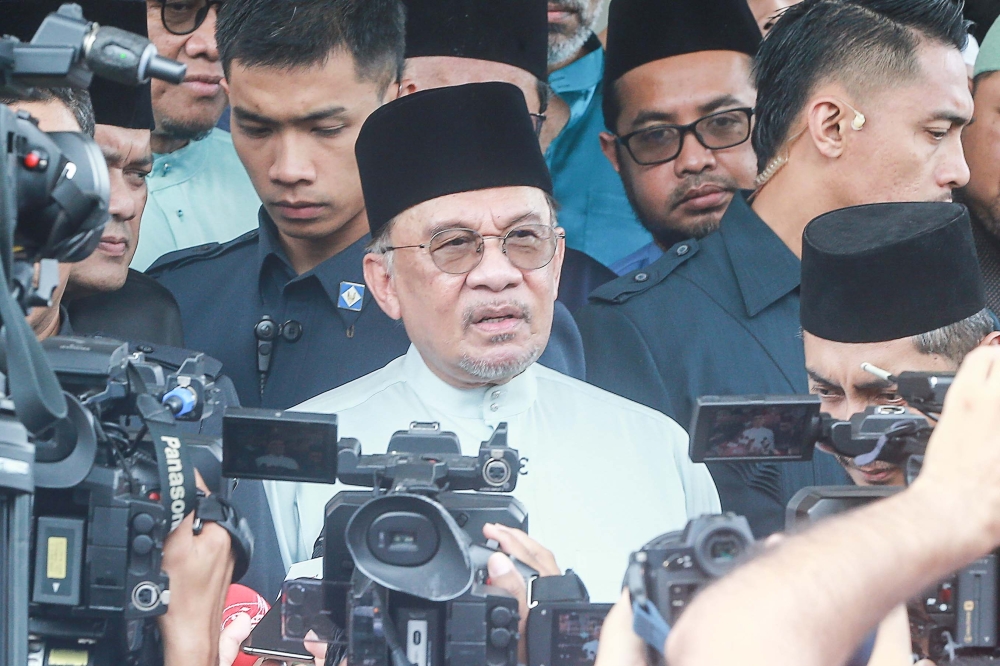麦克风外交的局限:安华政府的关税应对策略
麦克风外交的陷阱
当前全球贸易格局复杂多变,关税壁垒频现,各国都需要找到自己的应对之道。马来西亚首相安华 recently faced this challenge when the United States imposed a 24% tariff on Malaysian imports. Instead of resorting to “megaphone diplomacy,” or making strong public statements to pressure the other side, Anwar chose a more pragmatic approach: sending officials to the US for negotiations. This raises the question: what exactly is “megaphone diplomacy,” and why did Anwar choose to avoid it?
关税阴影下的马来西亚
According to news reports, the US has imposed a 24% tariff on Malaysian imports, which has had a certain impact on Malaysia’s economy. This situation reminds us of the “tit-for-tat” tariff policy implemented during the Trump administration, which had a significant impact on global trade. Although time has passed, the influence of these tariff barriers still exists.
Faced with this challenge, the Anwar government did not choose to engage in high-profile “megaphone diplomacy,” but rather opted for a more stable approach: sending officials to the US for negotiations. This reflects a clear understanding of the reality: in complex international relations, emotional outbursts often do not help solve problems and may even exacerbate conflicts.
“麦克风外交”的陷阱
So, what exactly is “megaphone diplomacy,” and why is it not a good idea? In simple terms, “megaphone diplomacy” refers to a government or political figure using public forums and social media to make strong statements on foreign policy issues, in an attempt to put pressure on the other side or gain domestic support.
The drawbacks of this approach are evident:
- Escalation of conflicts: Public criticism often angers the other party, leading to a deadlock in negotiations.
- Lack of flexibility: Once a public stance is taken, governments find it difficult to make concessions in negotiations, as this could be seen as weakness.
- Information noise: Too many public statements can drown out important information, making it difficult to solve problems.
The Anwar government is clearly aware of these risks and has chosen a more pragmatic approach to negotiations. This approach focuses on substantive communication and balancing interests, rather than quick verbal victories.
务实谈判:马来西亚的策略选择
So, what strategic considerations does the dispatch of officials to the US for negotiations entail?
- Respect: This is a sign of respect for the US and a demonstration of Malaysia’s commitment to its relationship with the US, and a willingness to resolve issues through dialogue.
- Professionalism: Sending professional officials can lead to a deeper understanding of the root causes of the problem and the proposal of more constructive solutions.
- Flexibility: Officials can adjust their strategies flexibly at the negotiating table according to the situation, striving for the most favorable outcome for Malaysia.
This pragmatic negotiating strategy also reflects the Anwar government’s consistent diplomatic style. In complex international environments, Malaysia needs to protect its own interests while maintaining good relations with other countries. This requires a balancing act: being bold enough to express one’s demands, but also being good at communication and compromise.
东盟的团结:共同抵御外部压力
In addition to bilateral negotiations with the US, Anwar also emphasizes the importance of ASEAN unity. He believes that in the face of external tariff pressure, ASEAN countries should stand together and resist together.
This reflects a collective wisdom. ASEAN, as a regional organization, has strong cohesion. Through internal cooperation, ASEAN countries can better respond to external challenges and protect their own interests.
温和解决:马来西亚的长期策略
Anwar stresses that Malaysia will continue to resolve tariff issues in a calm manner and will not engage in megaphone diplomacy. This reflects a long-term strategic vision.
In international relations, confrontation is not the only option. Through dialogue, cooperation, and compromise, mutual benefit can also be achieved. Malaysia’s choice of calm resolution is not only to maintain its relationship with the US, but also to maintain its international image and create better conditions for future development.
结语:理性务实,方能行稳致远
The Anwar government’s tariff response strategy reflects a rational and pragmatic diplomatic wisdom. In complex international environments, emotional outbursts often do not achieve results, and only through pragmatic negotiations and communication can the best solutions be found.
“Megaphone diplomacy” may win temporary attention, but ultimately it is practical efforts that bring real benefits. The Anwar government’s strategy provides a useful reference for other developing countries: when facing external pressure, stay calm and rational, resolve issues through dialogue and cooperation, and protect your own interests, which is the key to long-term success.

